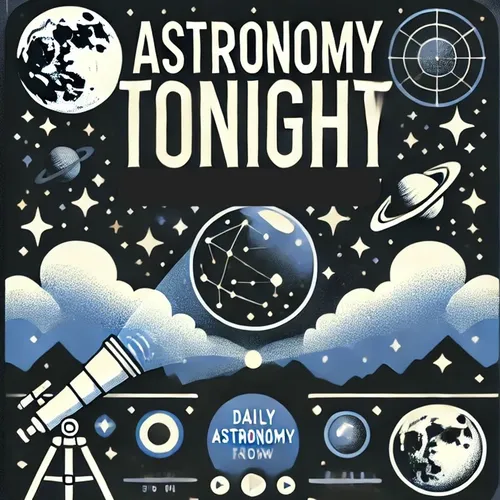Solar Corona Unveiled: The Day Science Pierced the Sun's Veil
- Author
- QP-4
- Published
- Mon 28 Jul 2025
- Episode Link
- https://www.spreaker.com/episode/solar-corona-unveiled-the-day-science-pierced-the-sun-s-veil--67150743
This is your Astronomy Tonight podcast.
On this day, July 28th, in the year 1851, the world of astronomy was forever changed when a total solar eclipse led to the discovery of the solar corona. This celestial spectacle was observed by astronomers across Europe, and it was during this event that the true nature of the Sun's outer atmosphere was first revealed.
Picture this: It's a warm summer day in Prussia, and excitement is building among astronomers and the public alike. As the Moon slowly creeps across the face of the Sun, darkness falls in the middle of the day. But it's what happens next that truly astonishes everyone present.
As totality sets in, a brilliant, pearly-white halo suddenly becomes visible around the edges of the darkened Sun. This ethereal glow, now known as the solar corona, had been glimpsed before during eclipses, but its true nature remained a mystery until this fateful day.
Enter our hero of the hour, German astronomer August Ludwig Busch. Armed with a small telescope and a keen eye, Busch became the first person to scientifically describe the solar corona. He noted its irregular shape and radiant structure, likening it to a "wreath of light" surrounding the Sun.
But wait, there's more! This eclipse also marked the first time the corona was successfully photographed, thanks to the efforts of Berkowski at the Royal Observatory in Königsberg. His daguerreotype image, though faint by modern standards, was a groundbreaking achievement in astrophotography.
This discovery opened up a whole new field of solar physics. Scientists began to speculate about the nature of this mysterious corona, leading to decades of research and eventually our modern understanding of the Sun's complex structure and behavior.
So, the next time you see a total solar eclipse, remember August Ludwig Busch and the day the corona was first truly seen. It just goes to show that sometimes, the most illuminating discoveries happen in the darkest moments!
And now, dear listeners, if you enjoyed this cosmic tidbit, don't forget to subscribe to the Astronomy Tonight podcast. For more fascinating stories and mind-bending facts about our universe, check out QuietPlease.AI. Thank you for listening to another Quiet Please Production. Until next time, keep looking up!
